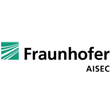(A PDF version of the press release is available here)
- EU-funded project SAIL has developed mechanisms and protocols for Information Centric Networks (ICN) that help to manage the heavy workload of transferring media information more efficiently than today’s networks.
- EFRAIM and other research projects will benefit from this work and continue to further detail the future solutions for media distribution – their business models and customer satisfaction are two key elements of these solutions.
- SAIL has been part of the creation of the ICN Research Group (ICN-RG) within the research part of the standards organization IETF, as ICN is close to possible first deployment.
How will users access media in the future? And what factors will affect the performance of media distribution?
The EU-funded project SAIL, Scalable and Adaptive Internet Solutions, has helped to evolve the current network to better fit tomorrow’s needs. The project is led by Ericsson, and involves 25 leading telecommunications players from Europe, Australia and Israel. It is funded by the European Commission’s seventh framework program (FP7), started in August 2010, and ends February 2013.
Users accessing information and applications are mobile and they expect their computing environment to follow them. The project solutions will ensure that the user’s favorite applications are responsive and perceived as being available at “arm’s length” – no matter where they are in the world. The NetInf system for Information Centric Networking has been used in SAIL as a research platform to enable users to address content directly, rather than addressing servers to get the closest copy. This is being demonstrated at the event ‘Future Media Distribution using Information Centric Networks’ in Stockholm 13th February.
SAIL has also presented Cloud Networking as a concept to automatically establish and manage distributed cloud resources (computation, storage and networking) within and across providers’ domains, making it possible for operators to be part of interconnected clouds across the internet.
SAIL partners have been involved in the creation of the ICN Research Group (ICN-RG). ICNRG is part of the Internet Research Task Force, IRTF which is a parallel organization to the Internet Engineering Task Force (IETF), that develops and promotes Internet standards.
EFRAIM is a national Swedish project, funded by VINNOVA, Sweden’s innovation agency. The purpose of the project is to identify and develop distributed network solutions for media distribution. The solutions should be robust, scalable, cost efficient and above all energy efficient. The consortium includes content owners, producers, distributors, vendors, operators and researchers. The mix of partners in the project will ensure that the identified solutions will be technically relevant and commercially attractive.
Existing and newly-developed solutions will be analyzed in detail regarding total energy consumption for the media delivery, user behaviors and experienced quality.
Partners, SAIL:
Ericsson (Sweden), Alcatel-Lucent (Germany), Nokia Siemens Networks (Finland), NEC Europe (Germany), France Telecom (France), Telefónica Research and Development (Spain), Telecom Italia (Italy), Portugal Telecom Inovação, (Portugal), SICS (Sweden), IST-UTL (Portugal), University of Paderborn (Germany), Aalto University (Finland), KTH (Sweden), Fraunhofer AISEC (Germany), University of Bremen, (Germany), Hewlett-Packard (UK), Fundacion Robotiker (Spain), Institut Telecom (France), Technion, (Israel), DOCOMO Eurolabs (Germany), Inria (France), Trinity College Dublin (Ireland), NICTA (Australia), Universidad de Cantabria (Spain), Lyatiss (France).
Partners, EFRAIM:
Acreo, SICS, LTH, Ericsson, SVT, TV4, TeliaSonera, Spotify, Qbrick and Peerialism. (All from Sweden).
For further information, please contact:
Project websites:
SAIL: www.sail-project.eu
EFRAIM: www.acreo.se/efraim
Contacts:
SAIL Project Manager: Thomas Edwall (Ericsson), phone: +46 10 719 6310
EFRAIM Project Manager: Andreas Aurelius (Acrea, Swedish ICT AB), phone: +46 8 632 7802































